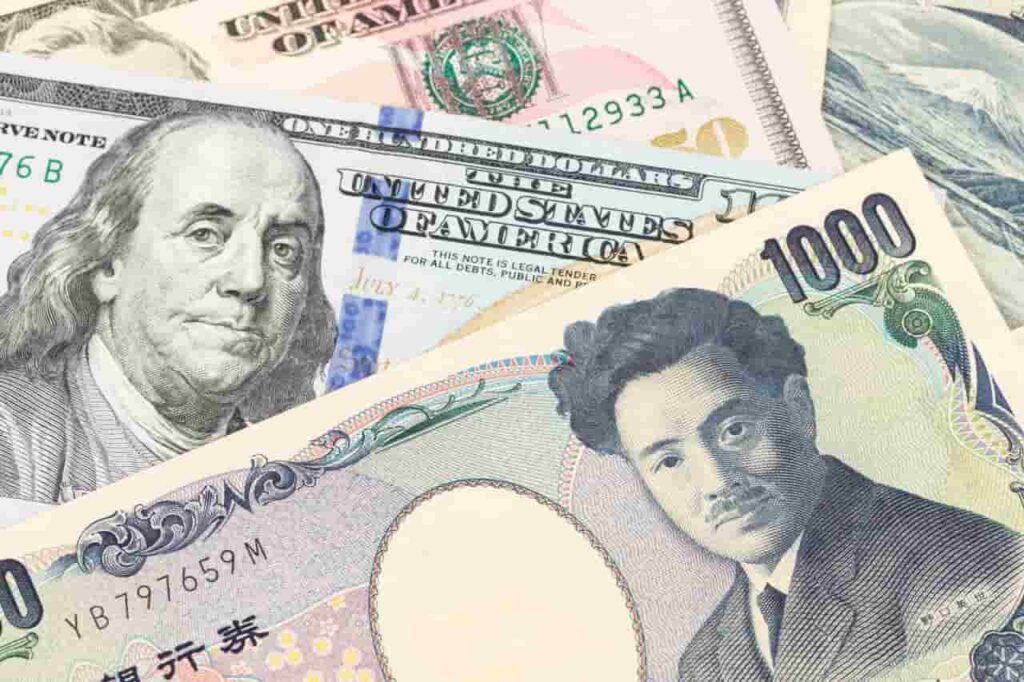
Asian Currencies Struggle Amid Market Rout; Yen Surges on Safe Haven Demand and BOJ Rate Hike Hopes

Asian currencies experienced a flat-to-low range on Thursday as equity market turmoil led traders to avoid risk-driven assets. The dollar retreated ahead of key economic data releases, while the Japanese yen stood out by rallying to its strongest levels against the dollar in over two months.
Yen Outpaces Peers on Safe Haven Demand and Rate Hike Speculation
The Japanese yen surged, with the USD/JPY pair dropping 1% to 152.38, its lowest level since early May. This rally was fueled by suspected currency market intervention by the Japanese government in early July, which squeezed short positions on the yen and led to extended gains. The anticipation of a potential 10 basis point rate hike by the Bank of Japan (BOJ) next week also supported the yen, as the Japanese economy shows signs of resilience.
Dollar Eases Ahead of Key Economic Data
The dollar index and dollar index futures fell slightly in Asian trade, continuing an overnight decline. This was driven by increasing confidence that the Federal Reserve will cut interest rates in September. Upcoming GDP data for the second quarter and PCE price index data are expected to provide further clues on potential rate cuts. The Federal Reserve is set to meet next week and is expected to keep interest rates steady while signaling a possible rate cut in September.
Broad Weakness in Asian Currencies
Most Asian currencies showed little relief from a weaker dollar or the prospects of lower US interest rates, as risk appetite remained subdued. The Chinese yuan hovered around its weakest levels in eight months amid concerns over a slowing economic recovery and surprise rate cuts by the People’s Bank of China. This pressure extended to China-exposed currencies like the Australian dollar and the New Zealand dollar, both of which saw further selling.
The South Korean won fell by 0.4% against the dollar, influenced by weaker-than-expected GDP data for the second quarter. The Singapore dollar remained stable due to some safe haven demand, while the Indian rupee hovered just below its record high of over 83.8 against the dollar.
Key Takeaways for Traders
- Yen’s Surge: Driven by safe haven demand, BOJ rate hike expectations, and currency market intervention.
- Dollar’s Decline: Ahead of critical GDP and PCE data, with rate cut speculation in focus.
- Asian Currencies’ Weakness: Persistent caution due to equity market rout and economic concerns, particularly regarding China.
Stay informed about market movements and make well-timed trades by keeping an eye on these key economic indicators.
Never miss any important news. Subscribe to our newsletter.
Related News





Is Your Trading Strategy Falling Short? Here’s How to Fix It for Good


EUR/USD Struggles Near 1.0460 as ECB-Fed Policy Divergence Weighs



Australian Dollar Struggles as Strong US Dollar Awaits Key CPI Data

“Indian Rupee Nears Record Low Amid Key Challenges and USD/INR Trends

Never miss any important news. Subscribe to our newsletter.
Editor's Pick

Silver Price Prediction: XAG/USD Drops to Three-Month Low Around $29.50




Is Your Trading Strategy Falling Short? Here’s How to Fix It for Good


